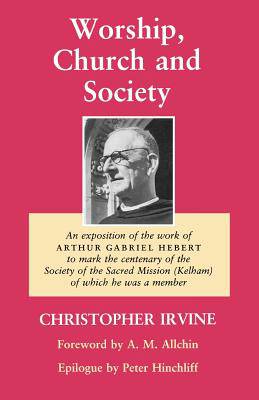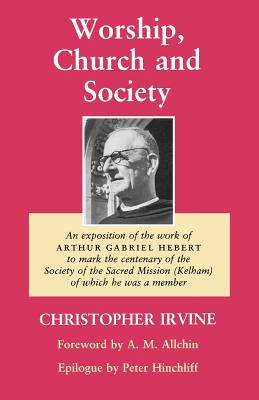
- Afhalen na 1 uur in een winkel met voorraad
- Gratis thuislevering in België vanaf € 30
- Ruim aanbod met 7 miljoen producten
- Afhalen na 1 uur in een winkel met voorraad
- Gratis thuislevering in België vanaf € 30
- Ruim aanbod met 7 miljoen producten
Zoeken
Worship, Church and Society
An Exposition of the Work of Arthur Gabriel Hebert to Mark the Centenary of the Society of the Sacred Mission (Kelham) of Which He Was a Member
Christopher Irvine
Paperback | Engels
€ 37,45
+ 74 punten
Omschrijving
AT A TIME when the ecumenical cause seems for many to be either running out of steam, or worse, radically off course, and when others are questioning whether the Eucharist ought to continue to be the central act of Sunday parish worship, it is imperative to consider again the insights and convictions of those who first moved the ecumenical movement, and who sought to establish the Parish Communion in the first half of this century. Through a re-reading of Gabriel Hebert's writings, Christopher Irvine here identifies and critically evaluates a number of these convictions, and in this study seeks to draw the crucial connections between worshi
Specificaties
Betrokkenen
- Auteur(s):
- Uitgeverij:
Inhoud
- Aantal bladzijden:
- 180
- Taal:
- Engels
Eigenschappen
- Productcode (EAN):
- 9781853110740
- Verschijningsdatum:
- 19/07/2012
- Uitvoering:
- Paperback
- Formaat:
- Trade paperback (VS)
- Afmetingen:
- 140 mm x 216 mm
- Gewicht:
- 213 g

Alleen bij Standaard Boekhandel
+ 74 punten op je klantenkaart van Standaard Boekhandel
Beoordelingen
We publiceren alleen reviews die voldoen aan de voorwaarden voor reviews. Bekijk onze voorwaarden voor reviews.











